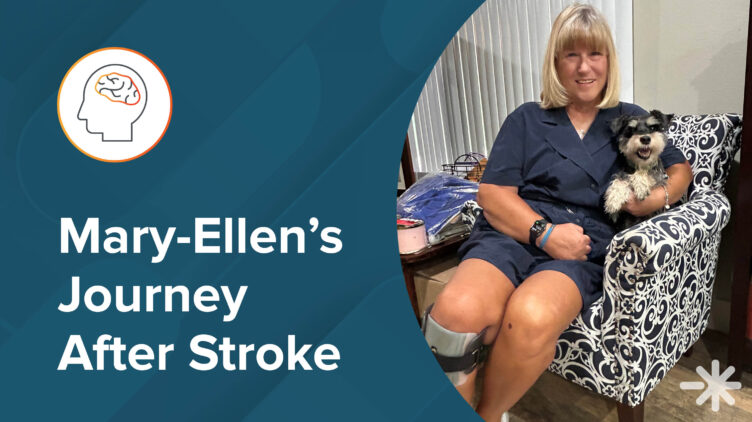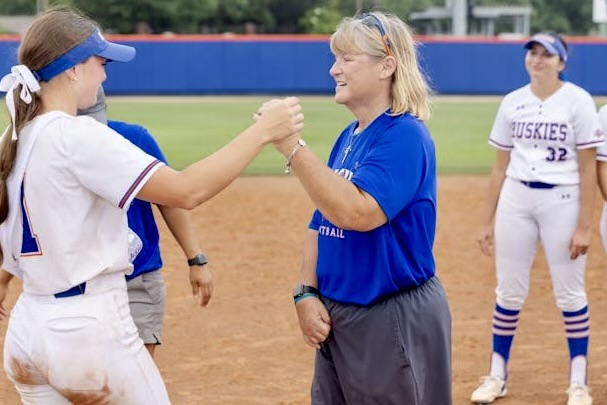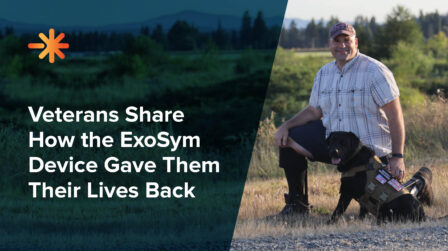Resilience in Recovery: Mary-Ellen’s Journey After Stroke

Mary-Ellen shares her remarkable journey, from her enduring legacy as a softball coach to her courageous battle with stroke. With a “never give up” spirit and support from her team and medical professionals, Mary-Ellen returns to an active life with the support of her ankle-foot orthosis. Through her story, she raises awareness about stroke symptoms and the importance of seeking timely medical attention while inspiring others to embrace recovery and live life to the fullest.
A Legacy in Softball
Only a few collegiate coaches and administrators can claim to have been part of an athletic department for over three decades, and Mary-Ellen Hall proudly stands among them. Currently, she is in her 33rd season as head softball coach at Houston Christian University (HCU).
Reflecting on the early days, Mary-Ellen recalls playing without proper gear or facilities, traveling in a van, and facing challenges. Fast forward to today, the Huskies boast a well-equipped team with multiple uniform options.
With over 890 career wins, Mary-Ellen holds the record for most wins by a coach in all sports at HCU and ranks as the second longest-tenured coach in NCAA Division I. Alongside coaching, Mary-Ellen has served as the University’s Senior Woman Administrator for over a decade, a role designed by the NCAA to promote female involvement in college athletics administration. In recognition of her contributions, she was named to the HCU Sports Hall of Honor in 2012.

Experiencing a Stroke
On August 18, 2015, Mary-Ellen’s life was changed.
“I was sitting in my office, talking with someone, when my right arm just suddenly dropped. Being a softball coach, I thought I had overused it the day before. After the meeting, I called my assistant, Roger, and told him what had happened. That night, I wasn’t feeling well after I got home and went to bed.
The next day, my assistant stopped by my house to check on me. We went to Memorial Hermann-Texas Medical Center and discovered I had a TIA. I was admitted to the hospital. Later that evening, I woke up and couldn’t move the right side of my body. I had experienced a stroke. My team showed up to express their support and be by my side.”
Mary had experienced a transient ischemic attack (TIA), commonly known as a mini-stroke, and a more severe stroke. Mary was admitted to the TIRR Memorial Hermann Challenge Program for rehabilitation. She was also fitted for an ankle-foot orthosis to assist with her right leg weakness.
Overcoming Mobility Challenges
“I am a right-side dominant person. I had to relearn how to do some everyday activities, including feeding myself and walking. Through the Challenge program, I was able to undergo extensive physical and occupational therapy. The program practices real-life activities and is geared towards getting you back to work and functioning the best you can.”
In addition Mary-Ellen’s therapy, she also received an ankle-foot orthosis and worked with Tom DiBello, L/CO, FAAOP, to assist her mobility.
“Tom is the greatest and has been instrumental in my continued progress. As an athlete and coach, I am very open to telling Tom what I like and what is working best. We have tried various ankle-foot orthoses to find the best fit for me and my active life.
I use my ankle-foot orthosis daily to assist me with walking. If I didn’t have my brace, I wouldn’t be able to do as much as I do in life. It helps me to walk, stay active, take care of my dog, and do my job as a coach, keeping up with college kids.”
Life Today
Coaching looks slightly different for Mary-Ellen today.
“I am still right-side affected from the stroke, so I can no longer hit softballs, and I now mainly coach from the sidelines. I have fantastic assistants and the support of a great university. The kids on the team have been tremendous. Some are even physical and occupational therapy students who look for opportunities to continue my recovery.

While I can no longer run, I stay active. My dog, Jacks, counts on me to go on walks and keeps me going. I participated in an 8k walk with a friend, went adaptive skiing for the first time, and participate in a program called Rock Steady Boxing. The best thing I do for myself is to stay active and engaged in life so I can continue to live independently.”
Stroke Awareness
Looking back, Mary-Ellen wishes she recognized her symptoms and reacted sooner.
“We all think things like stroke will happen to someone else and not ourselves. I should have slowed down and paid attention to the signs as they were happening. Learn the symptoms of stroke and act F.A.S.T – face drooping, arm weakness, speech difficulty, and time to call 911 if someone is having a stroke. Every minute counts to get the lifesaving treatment needed to reduce the risk of death and serious disability from stroke. If you notice symptoms or think something is wrong, get checked out. The moment my arm dropped, I should have recognized something wasn’t right.
For those who have experienced a stroke, explore the recovery programs and assistive options that are available. These have been instrumental in helping me regain an active life and continue in my career.”
Request a Free Evaluation
If you are interested in learning more about orthotic bracing, schedule a free evaluation with one of our board-certified orthotists.
Latest Updates
Subscribe to stay up-to-date on our latest posts.


